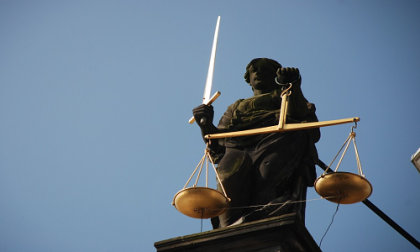US Department of Justice Reverses 2011 Wire Act Opinion Regarding Online Gambling
The United States Department of Justice (DOJ) on Monday issued an opinion regarding the reach of the 1961 Wire Act as it pertains to almost all forms of online gambling, instead of just to online sports betting. The opinion reverses the controversial November 2011 DOJ opinion issued by then US Attorney General Eric Holder that the intent of the Wire Act was clearly to bar the blocking of sports-betting wagers and related information.
The reversal opinion was created in the late days of former USAG Jeffery Sessions’ tenure. Sessions, an avowed foe of online gambling, had promised to release the revised opinion reversing the 2011 Holder opinion, but never completed that task amid larger controversies involving US President Donald Trump, which eventually resulted in Sessions’ ouster from his post. (Though Sessions was fired by Trump for other reasons, Sessions, a controversial, and in many eyes’ disgraced, former US Senator, remains one of the least qualified people ever to head the Department of Justice.)
 In what amounts to a 23-page grammar lesson, in the new opinion signed by Assistant Attorney General Steven A. Engel, the language of the initial 1961 was parsed down to where (or where should) commas exist in the text regarding the reach of the Wire Act beyond sports betting. The reversal also notes that the specific language reversing sports betting appears in one of four separate passages within the Wire Act enacted separate portions of the ban, and then declares that the ban was self-evident to be applicable to all forms of gambling.
In what amounts to a 23-page grammar lesson, in the new opinion signed by Assistant Attorney General Steven A. Engel, the language of the initial 1961 was parsed down to where (or where should) commas exist in the text regarding the reach of the Wire Act beyond sports betting. The reversal also notes that the specific language reversing sports betting appears in one of four separate passages within the Wire Act enacted separate portions of the ban, and then declares that the ban was self-evident to be applicable to all forms of gambling.
The 23-page opinion is claimed to be based on requests from within the Department of Justice, but the reexamination of the issue and reversal of the 2011 Holder opinion has long been pushed for by Las Vegas Sands Corp. CEO Sheldon Adelson, one of the largest GOP political donors in the US. Adelson has long sought to protect his land-based casino business from any possible online competition, spending tens of millions of dollar over the last decade in the effort.
Whether or not this reversal withstands expected court challenges remains to be seen, and a re-reversal a couple of years down the road is another possibility. Several US states are already generating revenue from various online-gambling channels, having acted to take advantage of the market opened by the 2011 Holder opinion. This reversal — though it is only an opinion, and thus is untested in court — could force these states back out of the online space, opening the door for unregulated and unprotected offshore services to re-enter many US states. Nonetheless, acting Attorney General Rod Rosenstein was expected to issue a memo later today asking prosecutors to hold off on enforcement based on the opinion for the next 90 days.
The back-and-forth battle over the proper reach of the Wire Act has gone on for decades. Early on, the DOJ expanded its interpretation of the antiquated Wire to include online methods of gambling, as well as almost all gambling forms. The singular exception was horseracing, which was exempted under a carveout created in 1978.
The 2011 Holder opinion came at the request of two populous US states, New York and Illinois, to offer sales of their state-run lotteries online but were barred from doing under the earlier ban-extending, pre-2011 reading of the Wire Act. That old act was later supplemented by the 2006 Unlawful Internet Gambling Enforcement Act (UIGEA), which created additional hurdles involving payment processing. Those hurdles served as an enhanced bar to US–based entities offering online gambling until the 2011 Holder opinion.
“Based upon the plain language of the statute, however, we reach a different result,” DOJ attorneys wrote in the opinion, referring to this 2019 interpretation compared to Holder’s 2011 one. “While the Wire Act is not a model of artful drafting, we conclude that the words of the statute are sufficiently clear and that all but one of its prohibitions sweep beyond sports gambling.”
The opinion also recognized that several US states have moved into the online-gambling space now deemed off limits, but essentially deemed it a matter for Congress to revisit. The opinion’s conclusion offered this:
“We acknowledge that some may have relied on the views expressed in our 2011 Opinion about what federal law permits. Some States, for example, began selling lottery tickets via the Internet after the issuance of our 2011 Opinion.
“But in light of our conclusion about the plain language of the statute, we do not believe that such reliance interests are sufficient to justify continued adherence to the 2011 opinion. Moreover, if Congress finds it appropriate to protect those interests, it retains ultimate authority over the scope of the statute and may amend the statute at any time, either to broaden or narrow its prohibitions.”
Legal challenges are likely to emerge within the coming weeks.




















COMMENTS